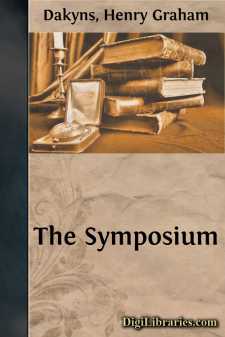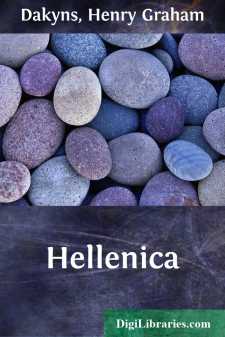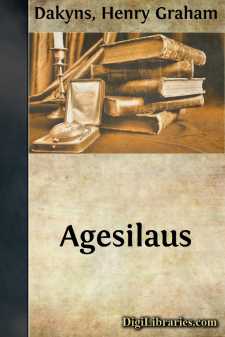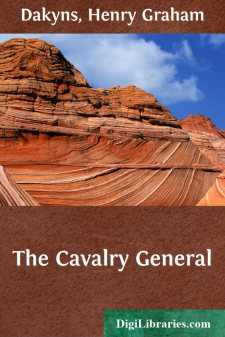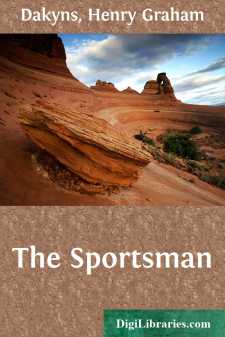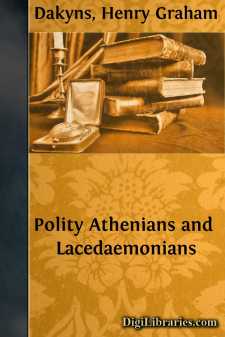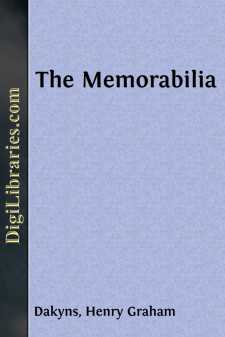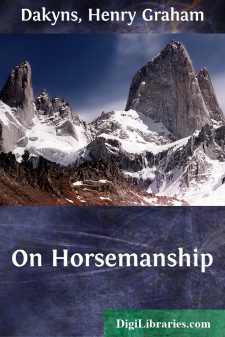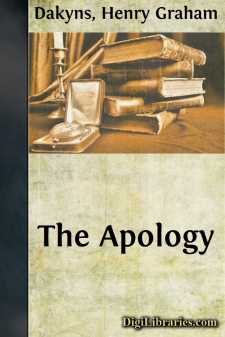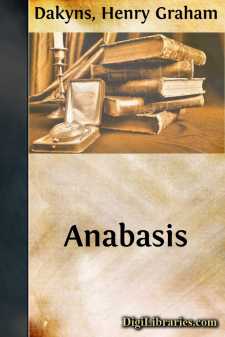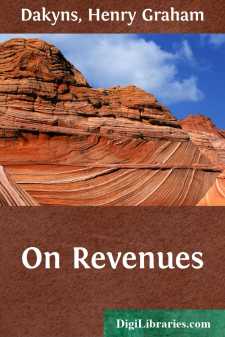Categories
- Antiques & Collectibles 13
- Architecture 36
- Art 48
- Bibles 22
- Biography & Autobiography 813
- Body, Mind & Spirit 142
- Business & Economics 28
- Children's Books 15
- Children's Fiction 12
- Computers 4
- Cooking 94
- Crafts & Hobbies 4
- Drama 346
- Education 46
- Family & Relationships 57
- Fiction 11828
- Games 19
- Gardening 17
- Health & Fitness 34
- History 1377
- House & Home 1
- Humor 147
- Juvenile Fiction 1873
- Juvenile Nonfiction 202
- Language Arts & Disciplines 88
- Law 16
- Literary Collections 686
- Literary Criticism 179
- Mathematics 13
- Medical 41
- Music 40
- Nature 179
- Non-Classifiable 1768
- Performing Arts 7
- Periodicals 1453
- Philosophy 64
- Photography 2
- Poetry 896
- Political Science 203
- Psychology 42
- Reference 154
- Religion 513
- Science 126
- Self-Help 84
- Social Science 81
- Sports & Recreation 34
- Study Aids 3
- Technology & Engineering 59
- Transportation 23
- Travel 463
- True Crime 29
The Symposium
Description:
Excerpt
IFor myself, (1) I hold to the opinion that not alone are the serious transactions of "good and noble men" (2) most memorable, but that words and deeds distinctive of their lighter moods may claim some record. (3) In proof of which contention, I will here describe a set of incidents within the scope of my experience. (4)
(1) See Aristid. ii. foll.
(2) Or, "nature's noblemen."
(3) Cf. Plut. "Ages." 29 (Clough, iv. 35): "And indeed if, as Xenophon
says, in conversation good men, even in their sports and at their
wine, let fall many sayings that are worth preserving." See Grote,
"Plato," ii. 228 foll. as to the sportive character of the work.
(4) Or, "let me describe a scene which I was witness of." See Hug.
"Plat. Symp." p. xv. foll.
The occasion was a horse-race (5) at the great Panathenaic festival. (6) Callias, (7) the son of Hipponicus, being a friend and lover of the boy Autolycus, (8) had brought the lad, himself the winner of the pankration, (9) to see the spectacle.
(5) See "Hipparch," ii. 1.
(6) "Held towards the end of July (Hecatombaeon) every year, and with
greater pomp every four years (the third of each Olympiad)."—Gow,
84, 129, n.
(7) Callias. Cobet, "Pros. X." p. 67 foll.; Boeckh, "P. E. A." p. 481.
(8) See Cobet, op. cit. p. 54; Plut. "Lysand." 15 (Clough, iii. 120);
Grote, "H. G." ix. 261.
(9) 420 B.C., al. 421. The date is fixed by the "Autolycus" of
Eupolis. See Athen. v. 216. For the pankration, which comprised
wrestling and boxing, see Aristot. "Rhet." i. S. 14.
As soon as the horse race was over, (10) Callias proceeded to escort Autolycus and his father, Lycon, to his house in the Piraeus, being attended also by Niceratus. (11) But catching sight of Socrates along with certain others (Critobulus, (12) Hermogenes, Antisthenes, and Charmides), he bade an attendant conduct the party with Autolycus, whilst he himself approached the group, exclaiming:
(10) See A. Martin, op. cit. p. 265.
(11) Niceratus. See Cobet, op. cit. 71; Boeckh, "P. E. A." 480; Plat.
"Lach." 200 C; "Hell." II. iii. 39; Lys. xviii.; Diod. xiv. 5.
(12) Critobulus, Hermogenes, Antisthenes, Charmides. See "Mem."
A happy chance brings me across your path, just when I am about to entertain Autolycus and his father at a feast. The splendour of the entertainment shall be much enhanced, I need not tell you, if my hall (13) should happily be graced by worthies like yourselves, who have attained to purity of soul, (14) rather than by generals and cavalry commanders (15) and a crowd of place-hunters. (16)
(13) Or, "dining-room." See Becker, "Charicles," 265.
(14) See Grote, "H. G." viii. 619 foll. Cf. Plat. "Rep." 527 D;
"Soph." 230 E.
(15) Lit. Strategoi, Hipparchs.
(16) Or, "petitioners for offices of state." Reading {spoudarkhiais}.
Whereat Socrates: When will you have done with your gibes, Callias? Why, because you have yourself spent sums of money on Protagoras, (17) and Gorgias, and Prodicus, and a host of others, to learn wisdom, must you pour contempt on us poor fellows, who are but self-taught tinkers (18) in philosophy compared with you?
...

